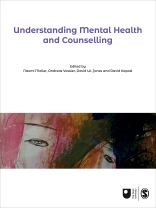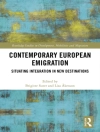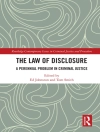Understanding Mental Health and Counselling provides a critical introduction to key debates about how problems of mental health are understood, and to the core approaches taken to working with counselling and psychotherapy clients. In drawing out the differences and intersections between professional and social understandings of mental health and counselling theory and practice, the book fosters critical thinking about effective and ethical work with mental health service users and therapy clients.
With chapters by noted academic writers and service-user researchers, and content enlivened by activities, first-person accounts and case material, the book provides a key resource for both counselling and psychotherapy trainees and those interested in the broader field of mental health.
Cuprins
Introduction
Part 1 Understanding mental health: the emergence of the talking cure
Chapter 1 The birth of psychiatry: questions of power, control and care – David W. Jones
Chapter 2 The service-user movement – Jo Lomani
Chapter 3 The history of the talking cure – Sarah Marks
Chapter 4 Diagnosis, classification and the expansion of the therapeutic realm – David Harper
Part 2 Presenting problems
Chapter 5 Understanding sadness and worry – Naomi Moller and Gina Di Malta
Chapter 6 Trauma and crisis – Andrew Reeves and Christina Buxton
Chapter 7 Relationships and intimacy – Naomi Moller
Chapter 8 Understanding psychological formulation – Lucy Johnstone
Part 3 Models of working
Chapter 9 The psychodynamic approach – David Kaposi
Chapter 10 Cognitive behavioural therapy – Simon P. Clarke
Chapter 11 The humanistic approach – Michael Sims and Gina Di Malta
Chapter 12 The pluralistic approach – Julia Mc Leod and John Mc Leod
Part 4 Counselling in practice
Chapter 13 The therapeutic relationship – Daragh Keogh and Ladislav Timulak
Chapter 14 Beyond the individual – Andreas Vossler
Chapter 15 Beyond face to face: technology-based counselling – Andreas Vossler
Chapter 16 Context of practice: boundaries and ethics – Clare Symons
Part 5 Contemporary issues: mental health and society
Chapter 17 The politics of research and evidence – Rebecca Hutten
Chapter 18 Mental health, criminal justice and the law – David W. Jones
Chapter 19 Individual or social problems? – David Kaposi
Chapter 20 Living in a therapeutic culture – Joanne Brown and Barry Richards
Conclusion
Despre autor
Andreas Vossler is Director of the Foundation Degree in Counselling and Senior Lecturer in Psychology at the Open University. He is also a systemic trained couple and family psychotherapist. His current research activities focus on therapeutic work with couples and families, infidelity, Internet infidelity, and counselling and psychotherapy. Andreas is co-editor of the Counselling and Psychotherapy Research Handbook (2014) and Understanding Counselling and Psychotherapy (2010; both Sage). He has authored three textbooks and published 17 book chapters and 19 articles in peer-reviewed papers on topics related to counselling and psychotherapy (family therapy, infidelity, online counselling, health psychology, psychiatry) and research methods. Andreas is on the editorial board of Counselling Psychology Quarterly and Forum Community-Psychology.












